Bill Anders har spesiell betydning for meg fordi han var sjef for Bell Helicopter Textron i 1986. Da kom han til Sola Sjø for å åpne verkstedet som bygde Bell 412SP for Forsvaret. Det var HS som sto for jobben, og jeg var en av to representanter valgt av de ansatte i styret på det tidspunkt. Vi fikk håndhilse på Anders under åpningen av verkstedet. HS bygde 18 maskiner. Les mer om Anders` fantastiske liv her: https://tinyurl.com/ycvk9htb Du kan se ham på BBC 5 i kveld. (Red.)
Sending astronauts to Mars would be stupid, astronaut says
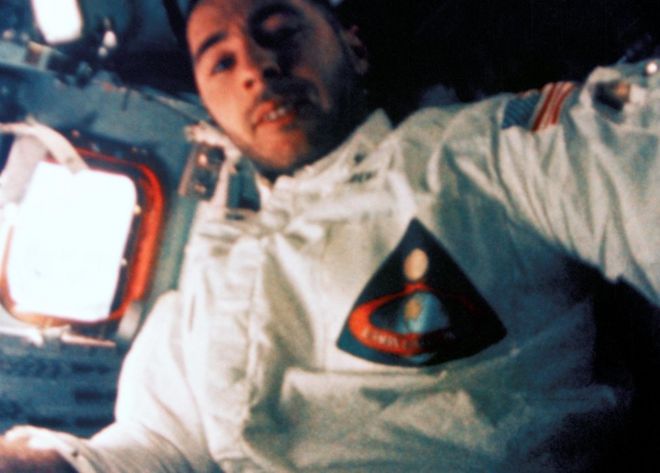 NASA
NASA
One of the first men to orbit the Moon has told BBC Radio 5 Live that it's "stupid" to plan human missions to Mars.
Bill Anders, lunar module pilot of Apollo 8, the first human spaceflight to leave Earth's orbit, said sending crews to Mars was "almost ridiculous".
Nasa is currently planning new human missions to the Moon.
It wants to learn the skills and develop the technology to enable a future human landing on Mars.
Nasa was approached for a response to Anders' comments, but hasn't responded.
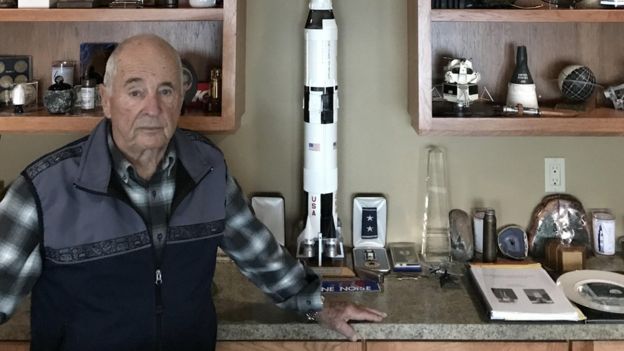
Anders, 85, said he's a "big supporter" of the "remarkable" unmanned programmes, "mainly because they're much cheaper". But he says the public support simply isn't there to fund vastly more expensive human missions.
"What's the imperative? What's pushing us to go to Mars?" he said, adding "I don't think the public is that interested".
Meanwhile, robotic probes are still exploring Mars. Last month, the InSight lander, which will sample the planet's interior, successfully touched down at Elysium Planitia.
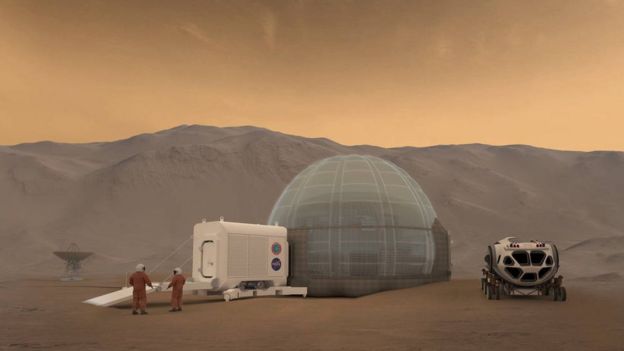 NASA
NASA
In December 1968, Anders, along with crewmates Frank Borman and Jim Lovell, lifted off from Cape Canaveral in Florida atop a Saturn V, before completing 10 orbits around the Moon.
The crew of Apollo 8 spent 20 hours in orbit, before returning to Earth.
They splashed down in the Pacific on 27 December, landing just 5,000 yards (4,500 metres) from their target point. They were picked up by the aircraft carrier USS Yorktown.
It was the furthest humans had ever been from their home planet at that point - and a vital stepping stone on the road to Apollo 11's historic moon landing just seven months later.
But the former astronaut is scathing about how Nasa has evolved since the heady days of President John F Kennedy's pledge to land a man on the Moon by the end of the 1960s.
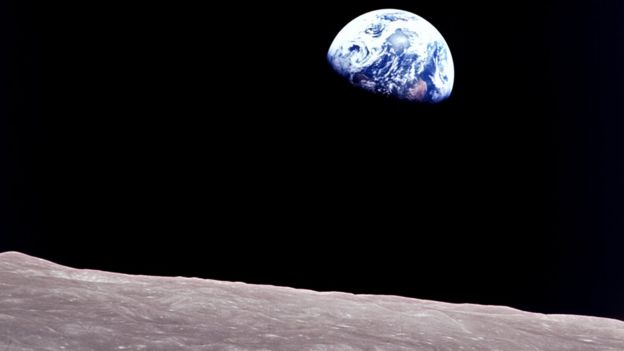 NASA
NASA
"Nasa couldn't get to the Moon today. They're so ossified... Nasa has turned into a jobs programme... many of the centres are mainly interested in keeping busy and you don't see the public support other than they get the workers their pay and their congressmen get re-elected."
Anders is also critical of the decision to focus on near-Earth orbit exploration after the completion of the Apollo programme in the 1970s. "I think the space shuttle was a serious error. It hardly did anything except have an exciting launch, but it never lived up to its promise," he said.
"The space station is only there because you had a shuttle, and vice-versa. Nasa really mismanaged the manned programme since the late lunar landings."
It's a view that might seem surprising from a proud patriot and servant of the US military, who still remembers his own mission to space with great fondness. It's also a view that Anders accepts doesn't sit too well with some in the space community.
"I think Nasa's lucky to have what they've got - which is still hard, in my mind, to justify. I'm not a very popular guy at Nasa for saying that, but that's what I think," he explained.
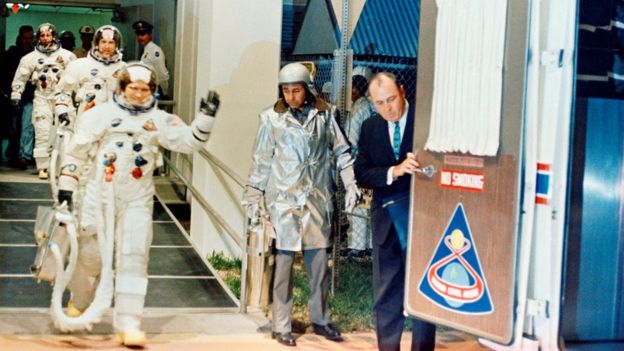 NASA
NASA
His former crewmate, Frank Borman, who commanded the Apollo 8 mission and also spent two weeks in Earth orbit during the Gemini programme, is slightly more enthusiastic.
"I'm not as critical of Nasa as Bill is," he told 5 Live. "I firmly believe that we need robust exploration of our Solar System and I think man is part of that."
But asked about the the plans of Space X founder Elon Musk and Amazon boss Jeff Bezos - who have both talked of launching private missions to Mars, Borman is less complimentary.
"I do think there's a lot of hype about Mars that is nonsense. Musk and Bezos, they're talking about putting colonies on Mars, that's nonsense."
Apollo's legacy
Reflecting on their own historic mission to the Moon, Borman described Apollo 8 as a "great endeavour" and agreed that it had won the space race.
Anders said he felt that the lasting legacy of the mission would be "Earthrise" a photo taken by the crew showing humanity's home planet hanging in the blackness of space above the lunar horizon.
Speaking to BBC Radio 4's PM, their crewmate Jim Lovell also reflected on the Earthrise moment: "When I looked at the Earth itself... I started to wonder why I was here, what's my purpose here… it sort of dawned me," he said.
"And my perspective is that God has given mankind a stage on which to perform. How the play turns out, is up to us."
Frank Borman and Bill Anders were speaking to BBC Radio 5 Live as part of a special documentary on the 50th anniversary of their historic lunar mission. Apollo 8: Christmas On the Far Side of the Moon will be broadcast on 5 Live on 24 December 2018 at 20:00 GMT.



Ingen kommentarer:
Legg inn en kommentar
Merk: Bare medlemmer av denne bloggen kan legge inn en kommentar.